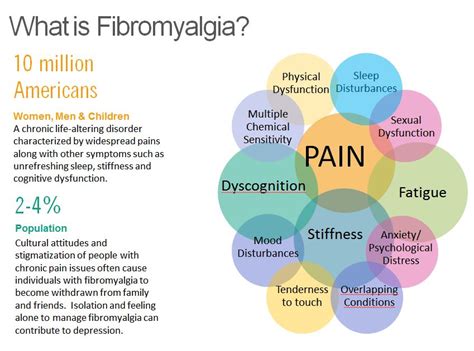Fibromyalgia and Disability: How to Get the Compensation You Deserve
Fibromyalgia is a chronic condition characterized by widespread musculoskeletal pain, fatigue, sleep disturbances, and cognitive difficulties. The debilitating nature of these symptoms can significantly impact a person's ability to work, leading many to seek disability benefits. Navigating the disability claim process, however, can be complex and challenging. This article will guide you through the process of obtaining the compensation you deserve if your fibromyalgia prevents you from working.
Understanding Fibromyalgia and its Impact on Work
Before diving into the application process, it's crucial to understand how fibromyalgia affects your ability to work. The unpredictable nature of the condition means symptoms can fluctuate, making consistent employment difficult. Common work-related challenges include:
- Pain Management: Constant pain can make even simple tasks incredibly challenging, leading to reduced productivity and absenteeism.
- Fatigue: Overwhelming fatigue can render you unable to maintain a regular work schedule or focus on tasks.
- Cognitive Dysfunction ("Fibro Fog"): Difficulties with memory, concentration, and processing information can severely impact job performance.
- Sleep Disturbances: Poor sleep quality exacerbates pain and fatigue, creating a vicious cycle that makes maintaining employment extremely difficult.
These symptoms, often experienced simultaneously, can render individuals unable to perform their job duties, even those they've held for many years. This is where establishing a strong case for disability benefits becomes essential.
What are the symptoms of fibromyalgia?
Fibromyalgia is characterized by a constellation of symptoms. The most prominent is widespread pain, lasting at least three months, affecting both sides of the body and above and below the waist. This pain is often described as a deep, aching, burning, or stabbing sensation. Beyond pain, individuals often experience profound fatigue, which goes beyond typical tiredness. Sleep disturbances are another key feature, frequently involving insomnia or unrefreshing sleep, despite spending sufficient time in bed. Cognitive difficulties, often referred to as "fibro fog," are also common and involve problems with concentration, memory, and mental clarity. Finally, many experience additional symptoms like headaches, irritable bowel syndrome, and sensitivity to light, sound, or temperature. The combination and severity of these symptoms vary significantly between individuals.
How is Fibromyalgia Diagnosed?
There is no single definitive test for fibromyalgia. Diagnosis typically involves a thorough medical evaluation by a physician or rheumatologist, including a physical examination and review of the patient's medical history. The doctor will assess the patient's pain levels and other symptoms, often using standardized questionnaires to gauge the severity and widespread nature of the pain. While blood tests and imaging studies may be used to rule out other conditions, they do not directly diagnose fibromyalgia. Instead, the diagnosis relies heavily on the patient's reported symptoms and their consistency with the established diagnostic criteria. The physician will also look for tenderness at specific points on the body, though this is not always a reliable indicator.
What types of disability benefits are available for Fibromyalgia?
Several disability benefit programs can assist individuals with fibromyalgia, each with its own eligibility criteria and application process. These include:
- Social Security Disability Insurance (SSDI): SSDI provides benefits to individuals who have contributed to Social Security through employment and are no longer able to work due to a disabling condition.
- Supplemental Security Income (SSI): SSI provides benefits to low-income individuals with disabilities, regardless of their work history.
- Private Disability Insurance: If you have private disability insurance through your employer or a personal policy, you may be able to receive benefits.
How to Build a Strong Disability Claim for Fibromyalgia
Building a robust disability claim requires meticulous documentation and a proactive approach. Key steps include:
- Comprehensive Medical Records: Gather all medical records, including doctor's notes, test results, and treatment plans. These records must clearly demonstrate the severity and impact of your fibromyalgia on your ability to work.
- Detailed Functional Assessments: Functional assessments from occupational therapists or physical therapists can provide objective evidence of your limitations in performing daily activities and work-related tasks.
- Statements from Friends and Family: Statements from individuals who can attest to the impact of your condition on your daily life can strengthen your claim.
- Work History Documentation: Provide detailed information about your work history, including job descriptions and any accommodations you've tried to maintain employment.
- Legal Counsel: Consider consulting with a disability lawyer or advocate to help navigate the complex legal process.
What should I do if my disability claim is denied?
If your initial disability claim is denied, don't give up. You have the right to appeal the decision. An experienced disability lawyer can help you prepare a strong appeal, gathering additional evidence and addressing any deficiencies in your initial application. The appeals process can be lengthy, so patience and persistence are crucial.
Navigating the disability claim process with fibromyalgia can be daunting, but with careful planning and the right support, you can significantly increase your chances of obtaining the compensation you deserve. Remember, seeking help from legal professionals and medical specialists is a key step in ensuring your claim is as strong as possible. Your health and well-being are paramount, and obtaining the necessary financial assistance can be instrumental in your journey to managing your condition effectively.

